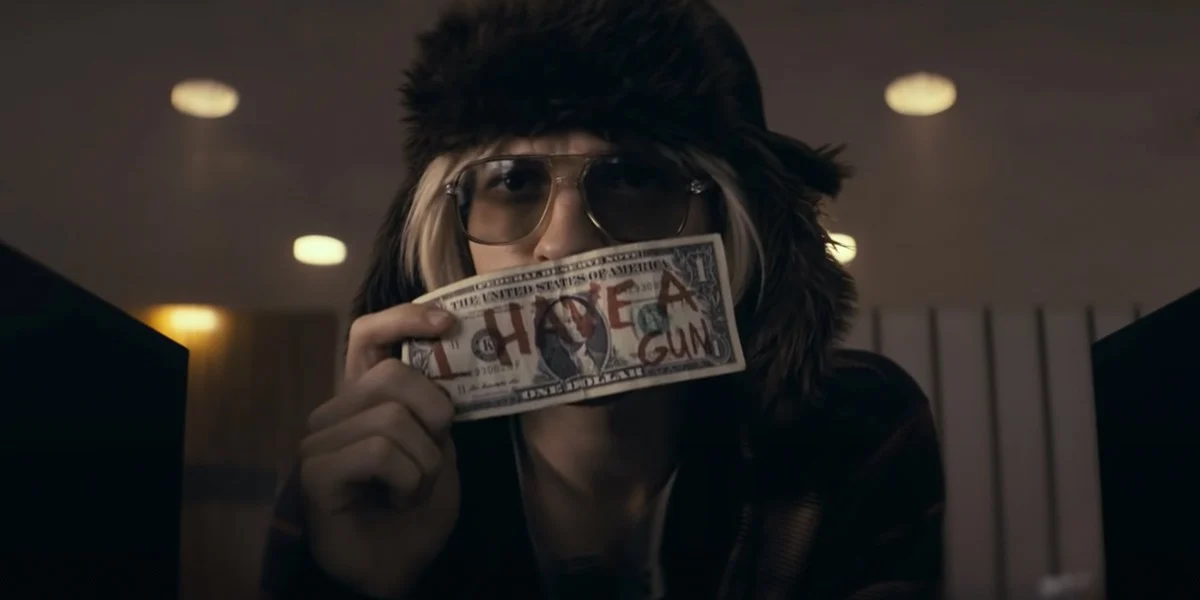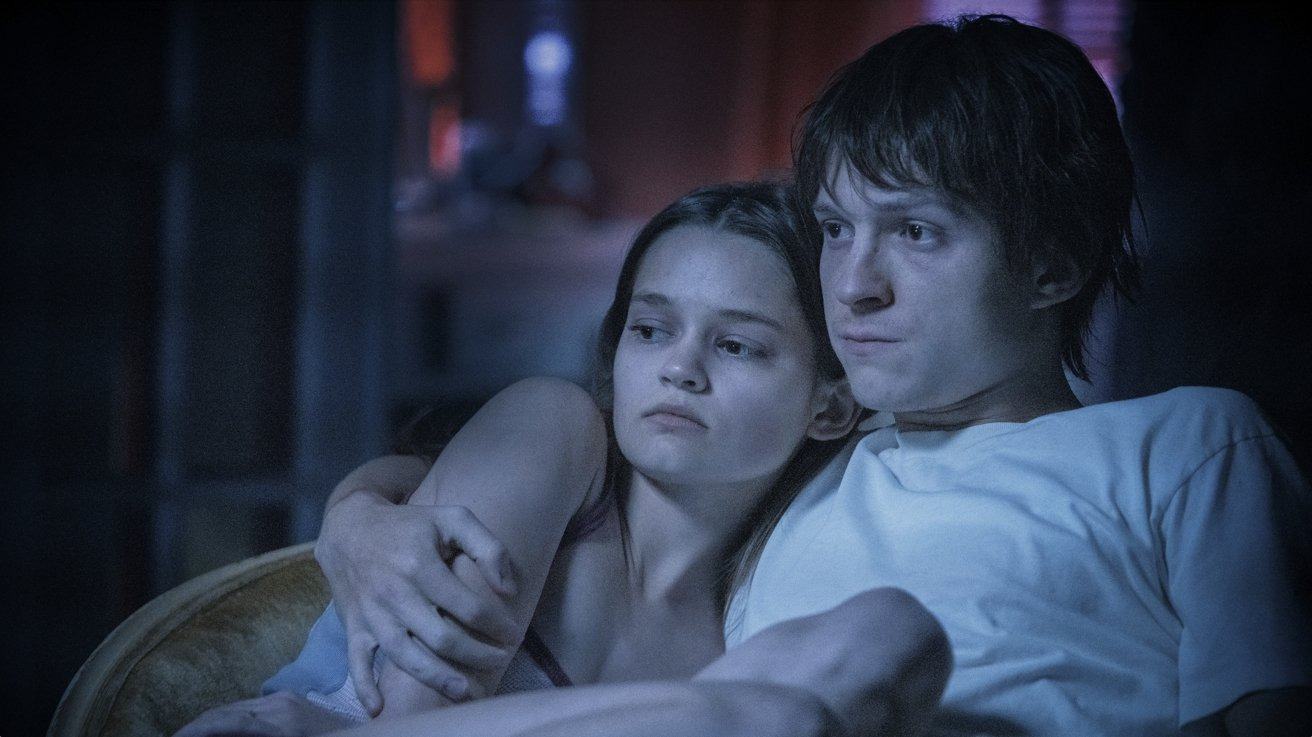Pre-pandemic, I’d be hard pressed to point to a week in my life when I wasn’t at the movie theater seeing something, anything. For a few years in the late 2000s, if my film of choice on a Friday after school was playing at the epically-sized 15-screen Cinema de Lux, then that film was guaranteed to be preceded by a music video stylistically very much of its era: “Citizen Soldier” by 3 Doors Down. Its emo-core, 300-style desaturated battle scenes, intermixed with sun-flared images of clean-cut college students who seemingly dream of nothing more than joining the military, are burned into my childhood memories forever. Simply by the fact I was forced to see it so many times, I actually can’t help but have a nostalgic soft spot for what was an objectively awful piece of propaganda paid for by the National Guard itself. It was so overproduced that my dad and I used to wonder about what kind of brainwashed, video game obsessed hothead they thought would walk out of the theater and put their lives in danger just because 3 Doors Down told them to…
Well, it turns out Nico Walker—the real-life protagonist of The Russo Brothers’ bold new picture, CHERRY—is precisely that kind of hothead, an archetypal “American Idiot,” to reference the Green Day anthem emblematic of the Bush-era this film successfully seeks to capture. The type of person who would, does, and worst of all, is knowingly allowed by our country to join up just because of something as trivial as a would-be college-aged break-up, a decision that leads him down the PTSD-laden, opioid-addicted path many veterans unfortunately find themselves on. The fact that he went one step further and, in grand pulpy fashion, became a bank robber is the reason why his story is the one that happened to get a movie made about it. Is it something to necessarily be rewarded for? Probably not, but at least now we’re paying attention. For better or for worse, this movie is not subtle. Nor should it be. This is an unabashedly wild, over-the-top melodrama that isn’t afraid to throw a bunch of genres in the blender and pour them into a typical middle-American, mediocre world of shadowy houses straight out of a Nickelback visual.

Indeed, the Russo Brothers masterfully subvert the tacky style on display in the 3 Doors Down video, and in many other music videos of the 2000s, like the punky pastels of “Sk8er Boi” by Avril Lavigne and the nightmarish wide angle shots of “The Real Slim Shady” by Eminem. These intentionally dated techniques allow for a parodic, yet unflinching contrast. Where 3 Doors Down shows us bloodless heroics, The Russos show us intestines, sores, and—in an already ridiculed but admittedly creative throwaway shot—the inside of Spider-Man’s asshole. Tom Holland’s usual “weak guy” shtick works well towards maintaining sympathy for an otherwise unlikeable character, while Ciara Bravo’s innocent face and bubblegum demeanor effectively sets us up for a wholesome Nickelodeon persona before providing a gruesome downfall; Jack Reynor’s popped collar obsessed drug dealer is a spot-on spoof without being totally stereotypical.
And let it be said that at no time does this film ever feel like it’s staged for homogenous basic coverage as so many other films have in the last year. Every shot has an intention, whether you like that intention or not. If sometimes The Russos’ insistence on flashy shot after flashy shot feels like they’re compensating for years of a lack of authorial style on their Marvel movies, what’s wrong with that? This film can never be accused of a lack of visual imagination. I’ll always take having too much over having not enough. The film is full of cutaways to minor character backstories, like a soldier who might be a serial killer who we only get to know in a matter of 20 seconds before moving on and never speaking of him again. The only bonus of watching this film at home on a free trial of Apple TV+ (I’m still shocked by how paltry the programming is after over a year since launching), is that one can pause and look at some of the film’s intentionally cartoonish production design touches: a nameplate for a “Dr. Whomever,” or a sign for “Shitty Bank.” They contribute to a refreshing, devil-may-care attitude that allows us to experience the serious issues the film tackles in a more effectively irreverent manner that doesn’t feel like a sermon.

Make no mistake: CHERRY is not a perfect film. It uses narration to the point where it feels redundant to the images on screen, and the epilogue, that repeats the exact same unnecessary jail redemption montage as the very end of BABY DRIVER, could have and should have been excised completely. It loses points for not ending with the marvelous scene that comes before the epilogue—a one-last-fix turned surrender captured in riveting long-take followed by a God’s-eye crane shot. Too bad.
Some have called this film derivative, which at times it might be, but if you’re going to rip off a movie, you might as well aim high and go for one of the greatest of all time like TRAINSPOTTING. And while I would never say this film is anywhere near as good as that masterpiece, I will say that I’ll never forget scenes like one late in CHERRY where our unhinged protagonist repeatedly stabs himself in the leg with a needle out of severe frustration. Both the emotional and physical pain is palpable. For a moment, we are effectively frightened to be transported inside his head. Hours later, I still viscerally shudder at the thought of it. That’s cinema. Then again, given how many people seem to hate this thing, maybe I’m my own kind of “American Idiot.”















Comments